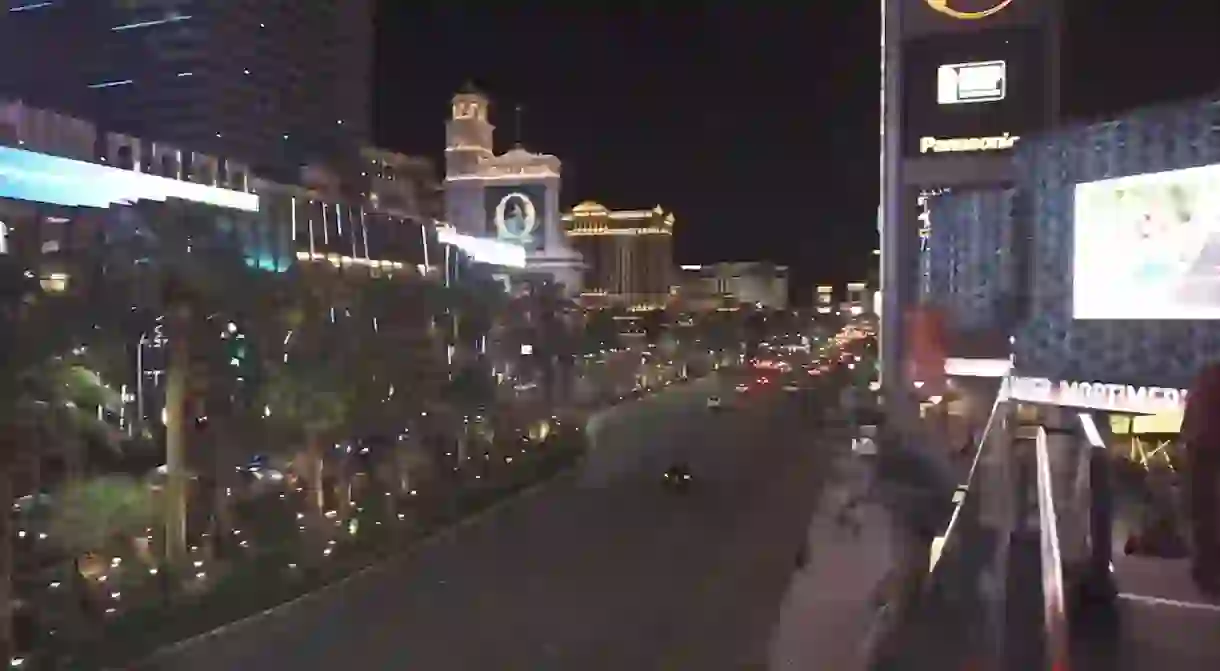History of The Las Vegas Strip in 1 Minute

The Las Vegas Strip is one of the most famous landmarks in the United States. It is an approximately four-mile (6.4-kilometer) section of Las Vegas Boulevard and technically lies in the unincorporated townships of Paradise and Winchester.
The skyline of the Las Vegas Strip has changed dramatically over the years, with new developments, renovations, and implosions altering the face of the most famous city in the world. While the Strip wasn’t always the center of Las Vegas, its development made the city a destination, rather than a stopping point on the way to California.
While Las Vegas became an official city in 1905, the Las Vegas Strip didn’t show signs of development until the early 1930s, with the opening of the Pair-O-Dice Club. The Strip didn’t see a boom in growth, however, until the 1940s, with the establishment of the El Rancho Vegas and later the emergence of organized crime figures such as Bugsy Siegel. Siegel’s hotel, the Flamingo, is one of the oldest remaining properties on the Strip, open since 1947. The Strip received its popular name from a businessman and former vice cop from Los Angeles; he christened the road after the Sunset Strip in L.A. With the dismantling of the mob throughout the 1970s and ’80s, corporations such as MGM began to take over and introduce the concept of resorts over hotels and individual casinos.
The changing architecture and design of the Las Vegas Strip is the city’s way of staying new and intriguing. With each new addition and renovation, the city maintains a contemporary aesthetic. One constant about the Strip, however, is the variation in style and design of each property. From The Venetian to Mandalay Bay, each resort is distinctive in its aesthetic, design, and layout. The Las Vegas Strip will continue to evolve as the city does, making it a living, breathing piece of history.













